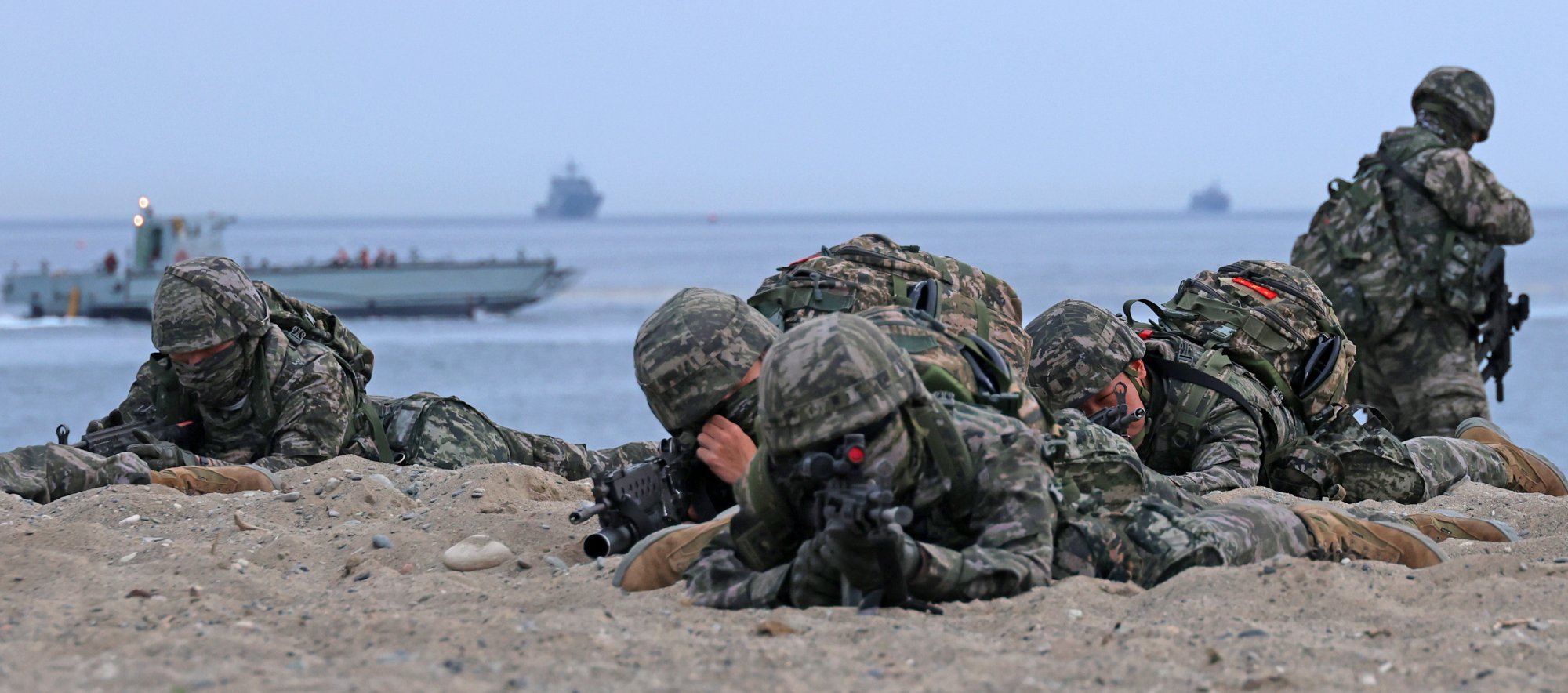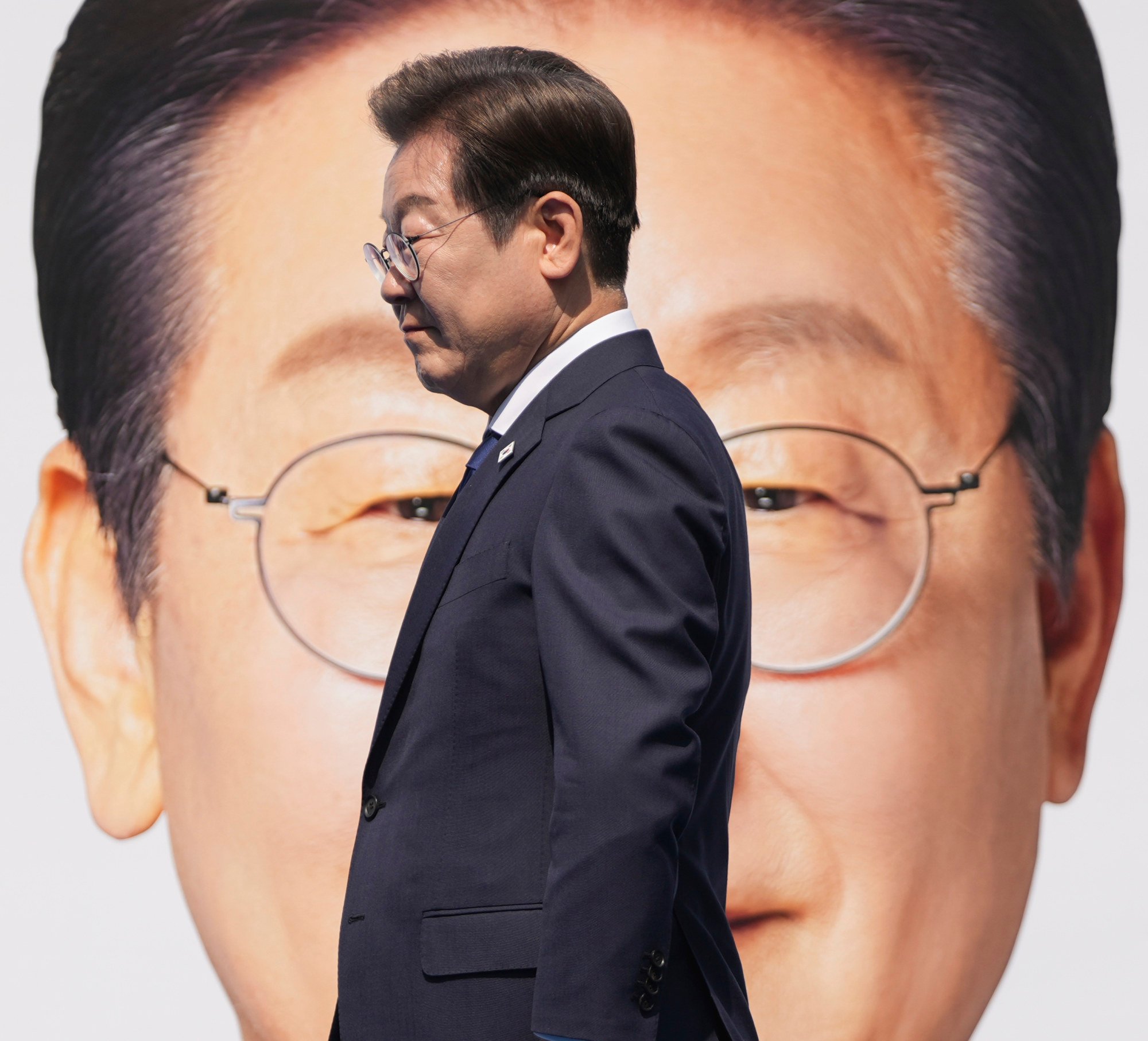Can South Korea, Japan forces train together? Joint drill denial reveals unresolved trauma
Many South Koreans may find it difficult to accept the idea of their soldiers training beside Japanese troops, analysts say

South Korea’s categorical denial of Japanese media reports that it will conduct its first-ever joint military exercise with Japan highlights the ongoing challenges facing the two countries in strengthening military cooperation, despite growing threats from North Korea and an increasingly assertive China, analysts say.
On Tuesday, major Japanese news outlets reported that the South Korean Marine Corps would participate in a joint exercise with the Japan Ground Self-Defence Force (JGSDF) as part of Kamandag, an annual multinational military exercise in the Philippines scheduled for next month.
Kamandag – short for Kaagapay ng mga Mandirigma ng Dagat, or “Cooperation of the Warriors of the Sea” – is led by the Philippine Marine Corps and the US Marine Corps.
However, South Korea’s Marine Corps swiftly denied the reports.
“We will conduct combined drills with the United States and the Philippines, but there is no plan to do so with the JGSDF,” a defence ministry spokesman told This Week in Asia on Wednesday. “As in previous years, the South Korean Marine Corps and the JGSDF will conduct separate exercises.”

A Marine Corp officer told Yonhap news agency: “There won’t be any scenario in which Korean marines and JGSDF troops share the same vessel.”
Chang Yong-seok, a senior researcher at Seoul National University’s Institute for Peace and Unification Studies, said any move towards joint drills with Japan would be politically sensitive in South Korea due to lingering resentment over Japan’s 1910-1945 colonial rule.
“For many Koreans, it’s still difficult to accept the idea of their soldiers training shoulder to shoulder with Japanese troops,” Chang said.
‘Historical grievances’
Japan is pushing to integrate regional military exercises like Kamandag into a broader Indo-Pacific strategy that treats Northeast Asia and the South China Sea as a unified operational theatre.
“But South Korea finds it hard to join such frameworks due to public opposition rooted in historical grievances, as well as strategic concerns about provoking China”, Chang said.
Cho Jin-goo, a professor of political science at Kyungnam University’s Institute for Far Eastern Studies, cautioned that Tokyo should tread carefully when discussing potential joint drills.
“Japanese authorities should avoid sparking public backlash in South Korea by prematurely suggesting military cooperation,” Cho said.
Since 2022, Japan’s Self-Defence Forces have been moving away from their traditionally passive posture and are now embracing capabilities for pre-emptive strikes.
“Japan needs to work to ease regional concerns about its expanding military capabilities, especially in countries like South Korea that were impacted by past military aggression,” Cho said.
He noted that Tokyo’s caution was even more critical as South Korea’s presidential front-runner, Lee Jae-myung, might take a more pragmatic stance on Japan if elected.
“Lee is unlikely to reverse the momentum for improved ties initiated under the Yoon administration,” Cho said, referring to President Yoon Suk-yeol, whose impeachment led to the June 3 snap presidential election.
“Lee would likely adopt a two-track approach – enhancing economic and security cooperation with Japan while carefully managing long-standing issues that continue to strain relations.”
These unresolved matters include compensation for victims of wartime forced labour and sexual slavery, Japan’s release of treated water from the damaged Fukushima nuclear reactor, and the territorial dispute over the Dokdo islets, known in Japan as Takeshima.
The Lee factor
In 2023, Lee staged a hunger strike in protest of Japan’s discharge of what he called “contaminated” water from the Fukushima plant, denouncing the move as “barbaric”.
When he was leading the liberal Democratic Party of Korea, Lee had criticised Yoon’s approach to Japan – including the creation of a Seoul-funded foundation to compensate victims of wartime forced labour – as “too submissive”.
Last year, however, he said South Korea could simply say “xie xie” or thank China, accusing Yoon of jeopardising trade ties with China through unnecessary provocations.
Lee has brought back controversy over these remarks when he said on Tuesday that South Korea should maintain good relations not only with the United States and Japan but also with China and Russia to increase exports.

In response, rival People Power Party (PPP) spokesman Shin Dong-wook accused Lee of being submissive to China.
“The upcoming presidential election is a confrontation between forces aiming to restore South Korea’s pride and defend its sovereignty, and anti-state forces characterised by pro-China submissive diplomacy”, Shin said on Wednesday.
Lee’s tone towards Japan has softened recently. In a congratulatory message to a forum on Korea-Japan ties last week, he called the two countries “important partners” with “a long history of close cooperation”.
“Continued cooperation between South Korea and Japan is vital for both economic growth and regional security,” he said. “We are at a geopolitical turning point. National interests must be secured through careful diplomacy and strengthened bilateral relations.”
Still, he acknowledged that “serious and complex issues remain, including historical disputes and the Fukushima water release”.
“To build a future-oriented relationship, historical grievances must be addressed,” Lee said. “Korea-Japan relations can further mature when dialogue, mutual respect and a responsible attitude are prioritised.”
Lee’s top foreign policy adviser, Kim Hyun-chong, confirmed this position in Washington last week, saying the candidate supported strong ties with both the US and Japan.
“I conveyed to US officials that candidate Lee and the Democratic Party of Korea view the South Korea-US alliance as crucial and believe it should be upgraded if possible,” Kim said. “There’s also a clear need to enhance trilateral cooperation among South Korea, the United States and Japan.”
“Given the current global environment, close collaboration between South Korea and Japan is essential,” he added.
Still, conservative critics argue that a Lee administration would reverse course on Yoon’s Japan-friendly policies and instead prioritise improved relations with China and Russia.
According to a Gallup Korea poll published on Wednesday, Lee polled at 51 per cent, followed by the conservative PPP’s Kim Moon-soo with 31 per cent and a splinter opposition party candidate Lee Jun-seok with 8 per cent.